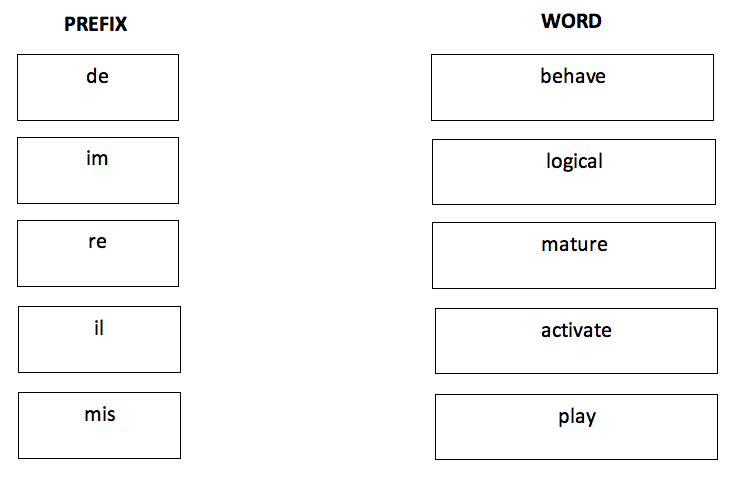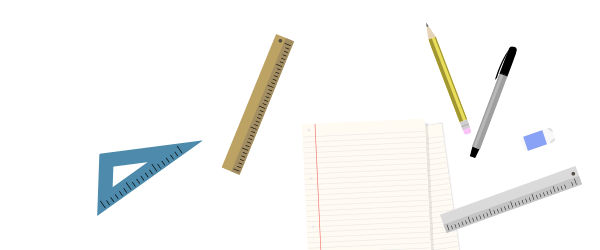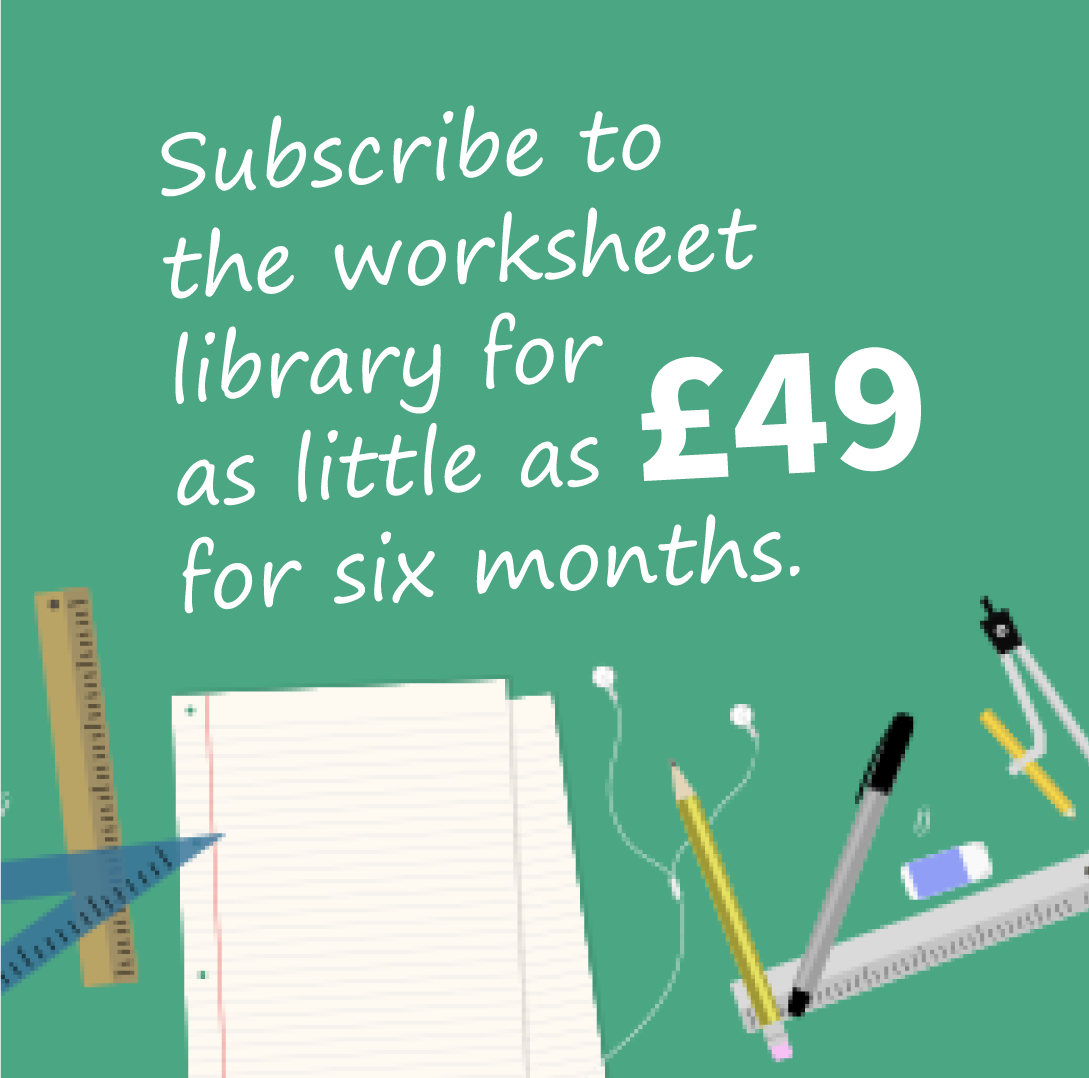What are prefixes?
What are prefixes? A prefix is a group of letters than can attach to the beginning of a root word to change its meaning.
For example, adding the prefix ‘un’ to the root word ‘certain’ creates the new word ‘uncertain’. The prefix ‘un’ gives the new word a negative meaning.
When are children taught about prefixes?
In Year 1 children are introduced to words with the prefix ‘un’, but most other prefixes will not be taught until Key Stage 3. Here is a list of prefixes children should be learning throughout KS2:
Years 3-4
| Prefix | Word examples |
|---|---|
| im | impossible, immobile |
| in | invisible, intolerable |
| mis | misbehave, miscalculate |
| dis | disagree, dislike |
| il | illogical, illegal |
| re | reuse, refill |
| inter | interact, interest |
| anti | antisocial, antibacterial |
| super | supernatural, supervise |
| auto | autograph, autobiography |
| sub | subscribe, submerge |
Years 5-6
| Prefix | Word examples |
|---|---|
| bi | biology, bicycle |
| aqua | aquatic, aquarium |
| aero | aerobics, aerospace |
| micro | microphone, microscope |
| audi | audience, audible |
| trans | transplant, transaction |
| prim | primary, primitive |
| tele | telephone, telescope |
| re | rewind, rename |
| pre | preview, predetermine |
| tri | tricycle, triangle |
In later KS2, children will also learn the meaning of different prefixes. For example:
| Prefix | Meaning | Example |
|---|---|---|
| bi | two | bicycle (two wheels) |
| auto | by itself | automatic (happens by itself) |
| sub | under | submarine (underwater) |
How are children taught about prefixes?
Teachers may focus a spelling test on words which begin with a particular prefix. For example, one week children may be asked to learn the following words:
unhelpful, unhappy, uncertain, unafraid, unable, unbelievable, unsafe, unusual, untrue, unusual.
Children may also be given prefix word banks when they are completing written exercises. The process of learning different prefixes and looking at example words will help to expand a child’s vocabulary and encourage them to use new words in their writing.
How to help children with prefixes?
One way to help children with prefixes is to make a set of prefix cards and root word cards and get them to match the root words to a suitable prefix. This will test a child’s knowledge of the prefix definitions and will also help them with spelling, as the words are broken down into sections.
Children may have to answer questions on prefixes during their Year 6 Grammar, Punctuation and Spelling Test. Therefore, it can be useful to give children practice questions so that they get an idea of what they will be expected to do. Here is an example question:
Draw a line to match each prefix to the correct word so that it makes a new word:

Answers:
deactivate, immature, replay, illogical, misbehave
How does Learning Street help children with prefixes?
Spelling Patterns is a structured part of the Learning Street courses. This will allow the children how to spell the prefixes, and also how to use them in sentences to allow them to properly understand the word.
Repeated use of prefixes when writing their own sentences, and learning about them through exercises such as spelling groups, spelling patterns and others will allow the child to get a full understanding of prefixes which is important for the Year 6 Grammar, Punctuation and Spelling Test.
Our Courses
Click through to review the courses we have available
- Independent School 11 Plus Exam Preparation Courses
- Grammar School 11 Plus Exam Preparation Courses
- Primary School Improvement/Development Courses
Our 11 Plus Mock Exam Papers
Berkshire Reading 11 Plus Mock Exam Papers
Kendrick 11 Plus Mock Exam Papers Bundle ( packs 1-4)
Reading School ( FSCE) 11 Plus Mock Exam 1
Reading School ( FSCE) 11 Plus Mock Exam 2
Reading School ( FSCE) 11 Plus Mock Exam 3
Reading School ( FSCE) 11 Plus Mock Exam 4
Reading School ( FSCE) 11 Plus Mock Exam Papers Bundle (packs 1-4)
Berkshire Slough 11 Plus Mock Exams
Slough 11 Plus Mock Exam Papers Bundle (Packs 1-4)
Barnet 11 Plus Mock Exams
Henrietta Barnett 11 Plus Mock Exam 1
Henrietta Barnett 11 Plus Mock Exam 2
Henrietta Barnett 11 Plus Mock Exam 3
Henrietta Barnett 11 Plus Mock Exam 4
Henrietta Barnett 11 Plus Mock Exam Papers Bundle ( Packs 1-4)
QE Boys 11 Plus Mock Exam Papers Bundle (packs 1-4)
Bexley 11 Plus Mock Exams
Bexley 11 Plus Mock Exam Papers Bundle (packs 1-4)
Bromley 11 Plus Mock Exams
Newstead Wood School Mock Exam 1
Newstead Wood School Mock Exam 2
Newstead Wood School Mock Exam 3
Newstead Wood School Mock Exam 4
Newstead Wood School Mock Exam Papers Bundle ( Packs 1-4)
St Olave’s Grammar School Mock Exam 1
St Olave’s Grammar School Mock Exam 2
St Olave’s Grammar School Mock Exam 3
St Olave’s Grammar School Mock Exam 4
St Olave’s Grammar School Mock Exam Papers Bundle (Packs1-4)
Bucks 11 Plus Mock Exams
Bucks 11 Plus Mock Exam Papers Bundle (packs 1-4)
Cumbria 11 Plus Mock Exams
Queen Elizabeth’s Grammar School 11 Plus Mock Exam 1
Queen Elizabeth’s Grammar School 11 Plus Mock Exam 2
Queen Elizabeth’s Grammar School 11 Plus Mock Exam 3
Queen Elizabeth’s Grammar School 11 Plus Mock Exam 4
Queen Elizabeth’s Grammar School 11 Plus Mock Exam Papers Bundle (Packs 1-4)
Devon and Torbay 11 Plus Mock Exams
Devon and Torbay 11 Plus Mock Exam 1
Devon and Torbay 11 Plus Mock Exam 2
Devon and Torbay 11 Plus Mock Exam 3
Devon and Torbay 11 Plus Mock Exam 4
Devon and Torbay 11 Plus Mock Exam Papers Bundle (packs 1-4)
Colyton School FSCE 11 Plus Mock Exam 1
Colyton School FSCE 11 Plus Mock Exam 2
Colyton School FSCE 11 Plus Mock Exam 3
Colyton School FSCE 11 Plus Mock Exam 4
Colyton School FSCE 11 Plus Mock Exam Papers Bundle ( packs 1-4)
Dorset 11 Plus Mock Exams
Dorset 11 Plus Mock Exam Papers Bundle (packs 1-4)
Enfield 11 Plus Mock Exams
The Latymer School 11 Plus Mock Exam 1
The Latymer School 11 Plus Mock Exam 2
The Latymer School 11 Plus Mock Exam 3
The Latymer School 11 Plus Mock Exam 4
The Latymer School 11 Plus Mock Exam Papers Bundle ( packs 1-4)
Essex CSSE and FSCE 11 Plus Mock Exams
Essex CSSE 11 Plus Mock Exam 1
Essex CSSE 11 Plus Mock Exam 2
Essex CSSE 11 Plus Mock Exam 3
Essex CSSE 11 Plus Mock Exam 4
Essex CSSE 11 Plus Mock Exam Papers Bundle (packs 1-4)
Chelmsford County High School for Girls FSCE 11 Plus Mock Exam 1
Chelmsford County High School for Girls FSCE 11 Plus Mock Exam 2
Chelmsford County High School for Girls FSCE 11 Plus Mock Exam 3
Chelmsford County High School for Girls FSCE 11 Plus Mock Exam 4
Chelmsford County High School for Girls FSCE 11 Plus Mock Exam Papers Bundle ( packs 1-4)
Gloucestershire 11 Plus Mock Exams
Gloucestershire 11 Plus Mock Exam 1
Gloucestershire 11 Plus Mock Exam 2
Gloucestershire 11 Plus Mock Exam 3
Gloucestershire 11 Plus Mock Exam 4
Gloucestershire 11 Plus Mock Exam Papers Bundle (Packs 1-4)
Hertfordshire 11 Plus Mock Exams
Dame Alice Owen’s 11 Plus Mock Exam 1
Dame Alice Owen’s 11 Plus Mock Exam 2
Dame Alice Owen’s 11 Plus Mock Exam 3
Dame Alice Owen’s 11 Plus Mock Exam 4
Dame Alice Owen’s 11 Plus Mock Exam Papers Bundle (Packs 1-4)
Hertfordshire Southwest 11 Plus Mock Exams
Hertfordshire South West 11 Plus Mock Exam 1
Hertfordshire South West11 Plus Mock Exam 2
Hertfordshire South West11 Plus Mock Exam 3
Hertfordshire South West 11 Plus Mock Exam 4
Hertfordshire South West 11 Plus Mock Exam Papers Bundle (Packs 1-4)
Kent 11 Plus Mock Exams
Kent 11 Plus Mock Exam Papers Bundle (packs 1-4)
Kent Medway 11 Plus Mock Exams
Kent Medway 11 Plus Mock Exam 1
Kent Medway 11 Plus Mock Exam 2
Kent Medway 11 Plus Mock Exam 3
Kent Medway 11 Plus Mock Exam 4
Kent Medway 11 Plus Mock Exam Papers Bundle (packs 1-4)
Kingston-Upon-Thames 11 Plus Mock Exams
Stage 1 Tiffin 11 Plus Mock Exam 1
Stage 1 Tiffin 11 Plus Mock Exam 2
Stage 1 Tiffin 11 Plus Mock Exam 3
Stage 1 Tiffin 11 Plus Mock Exam 4
Stage 1 Tiffin 11 Plus Mock Exam Papers Bundle (Packs 1-4)
If a pupil passes the stage 1 process, they will be invited back to take a second test.
Stage 2 Tiffin 11 Plus Mock Exam 1
Stage 2 Tiffin 11 Plus Mock Exam 2
Stage 2 Tiffin 11 Plus Mock Exam 3
Stage 2 Tiffin 11 Plus Mock Exam 4
Stage 2 Tiffin 11 Plus Mock Exam Bundle (Packs 1-4)
Lancashire 11 Plus Mock Exams
Lancashire 11 Plus Mock Exam 1
Lancashire 11 Plus Mock Exam 2
Lancashire 11 Plus Mock Exam 3
Lancashire 11 Plus Mock Exam 4
Lancashire 11 Plus Mock Exam Papers Bundle (packs 1-4)
Lincolnshire 11 Plus Mock Exams
Lincolnshire 11 Plus Mock Exam 1
Lincolnshire 11 Plus Mock Exam 2
Lincolnshire 11 Plus Mock Exam 3
Lincolnshire 11 Plus Mock Exam 4
Lincolnshire 11 Plus Mock Exam Papers Bundle (packs 1-4)
Redbridge 11 Plus Mock Exams
Redbridge 11 Plus Mock Exam Papers Bundle (packs 1-4)
Sutton 11 Plus Mock Exams
Sutton 11 Plus Mock Exam Papers Bundle (packs 1-4)
If a pupil passes stage 1, they will be invited back to take a stage 2 test.
Stage 2 Sutton 11 Plus Mock Exam 1
Stage 2 Sutton 11 Plus Mock Exam 2
Stage 2 Sutton 11 Plus Mock Exam 3
Stage 2 Sutton 11 Plus Mock Exam 4
Stage 2 Sutton 11 Plus Mock Exam Papers Bundle (packs 1-4)
Trafford 11 Plus Mock Exams
Trafford 11 Plus Mock Exam Bundle (Packs 1-4)
West Midlands 11 Plus Mock Exams
West Midlands 11 Plus Mock Exam 1
West Midlands 11 Plus Mock Exam 2
West Midlands 11 Plus Mock Exam 3
West Midlands 11 Plus Mock Exam 4
West Midlands 11 Plus Mock Exam Papers Bundle (packs 1-4)
Wiltshire 11 Plus Mock Exams
Bishop Wordsworth’s 11 Plus Mock Exam 1
Bishop Wordsworth’s 11 Plus Mock Exam 2
Bishop Wordsworth’s 11 Plus Mock Exam 3
Bishop Wordsworth’s 11 Plus Mock Exam 4
Bishop Wordsworth’s 11 Plus Mock Exam Papers Bundle (packs 1-4)
South Wilts 11 Plus Mock Exam 1
South Wilts 11 Plus Mock Exam 2
South Wilts 11 Plus Mock Exam 3
South Wilts 11 Plus Mock Exam 4
South Wilts 11 Plus Mock Exam Papers Bundle (packs 1-4)
Wirral 11 Plus Mock Exams
Wirral 11 Plus Mock Exam Papers Bundle (Packs 1-4)
Upton Hall School Mock Exam Papers Bundle (Packs 1&2)
Yorkshire Calderdale 11 Plus Mock Exams
Yorkshire Calderdale 11 Plus Mock Exam 1
Yorkshire Calderdale 11 Plus Mock Exam 2
Yorkshire Calderdale 11 Plus Mock Exam 3
Yorkshire Calderdale 11 Plus Mock Exam 4
Yorkshire Calderdale 11 Plus Mock Exam Papers Bundle (packs 1-4)
Yorkshire-North 11 Plus Mock Exams
Erymsted’s 11 Plus Mock Exam 1
Erymsted’s 11 Plus Mock Exam 2
Erymsted’s 11 Plus Mock Exam 3
Erymsted’s 11 Plus Mock Exam 4
Erymsted’s 11 Plus Mock Exam Papers Bundle (Packs 1-4)
Ripon Grammar School 11 Plus Mock Exam 1
Ripon Grammar School 11 Plus Mock Exam 2
Ripon Grammar School 11 Plus Mock Exam 3
Ripon Grammar School 11 Plus Mock Exam 4
Ripon Grammar School 11 Plus Mock Exam Papers Bundle ( Packs 1-4)
Skipton Girls’ High School 11 Plus Mock Exam 1
Skipton Girls’ High School 11 Plus Mock Exam 2
Skipton Girls’ High School 11 Plus Mock Exam 3
Skipton Girls’ High School 11 Plus Mock Exam 4
Skipton Girls’ High School 11 Plus Mock Exam Papers Bundle (Packs 1-4)
Independent School Mock Exams
Independent School 11 Plus Mock Exam 1
Independent School 11 Plus Mock Exam 2
Independent School 11 Plus Mock Exam 3
Independent School 11 Plus Mock Exam 4
Independent School 11 Plus Mock Exam Papers Bundle (Packs 1-4)
Northern Ireland Transfer Test
Northern Ireland Transfer Test Mock Exam Paper 1
Northern Ireland Transfer Test Mock Exam Paper 2
Northern Ireland Transfer Test Mock Exam Papers 1-4 Bundle
Northern Ireland Transfer Test Mock Exam Papers 5-8 Bundle
Our Worksheets
We have over ten thousand worksheets listed that can be drawn on to focus on any area of primary school development. We have broken these down into subject and school year.



